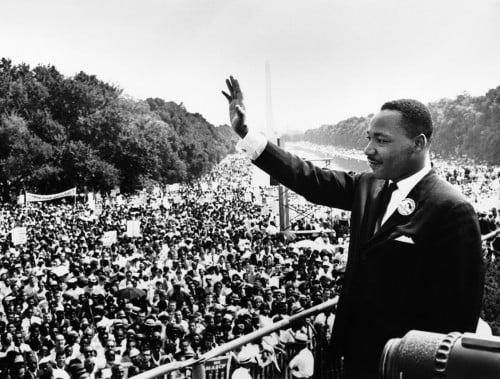Reading a post at Medium reminded me how far we have to go on every level of race relations. The post was from a college student child of a black man and white woman visiting the historic Touro Synagogue in Newport when someone made an assumption based on the variety of skin colors and asked, “What organization are you with?”
Now I don’t expect a uniform immediate reaction to that – I assume some are nodding their head understanding the unintended offense. Others are upset and feel the questioner should have been ‘knocked down a peg.’ Still, others will see it as a harmless statement or perhaps a misunderstanding, and yet others have rolled their eyes and thought, ‘oh great, here THEY go again’!
But Ben Donald’s Medium post isn’t about calling out well-meaning folks making unfortunate assumptions based on race, but rather about using such moments for reflecting on the state of our country, what each of us can do, and how we can continue to move things forward.
In his post, he notes a couple of elements from the temple: a trap door built into the synagogue when it was constructed in 1758 reflecting the active Newport slave trade and a letter from George Washington as he prepared to visit in 1790 as president. The trap door is important because it draws parallels between the persecution and escape of early Jews and the black slaves when the temple was built.
Here is the quote from George Washington:
“It is now no more that toleration is spoken of as if it were the indulgence of one class of people that another enjoyed the exercise of their inherent natural rights, for, happily, the Government of the United States, which gives to bigotry no sanction, to persecution no assistance, requires only that they who live under its protection should demean themselves as good citizens in giving it on all occasions their effectual support.”
I don’t know about you, but I wish that I lived in that country … but I never have, don’t now, and sadly know I won’t before I die.
Because nearly 200 years later there was a major event – the Martin Luther King ‘I have a dream’ speech culminating the ‘March on Washington’ in 1963. Here are a couple of snippets from that speech:
Five score years ago, a great American, in whose symbolic shadow we stand signed the Emancipation Proclamation. This momentous decree came as a great beacon light of hope to millions of Negro slaves who had been seared in the flames of withering injustice. It came as a joyous daybreak to end the long night of captivity.
“But one hundred years later, we must face the tragic fact that the Negro is still not free. One hundred years later, the life of the Negro is still sadly crippled by the manacles of segregation and the chains of discrimination. One hundred years later, the Negro lives on a lonely island of poverty in the midst of a vast ocean of material prosperity. One hundred years later, the Negro is still languishing in the corners of American society and finds himself an exile in his own land. So we have come here today to dramatize an appalling condition.
…
When the architects of our Republic wrote the magnificent words of the Constitution and the Declaration of Independence, they were signing a promissory note to which every American was to fall heir. This note was a promise that all men – yes, black men as well as white men – would be guaranteed the unalienable rights of life, liberty and the pursuit of happiness.
And while there is much we could discuss about the course and state of our country between then and now, instead, I want to quote the thought-provoking ending:
so what do we do?
As I’m writing this, I am trying to reconcile that question. So was George Washington and Dr. King. While we may still be working on it, we’re getting better. From 1790 to 1963, we’ve gotten better. From 1963 to 2013, we’ve gotten better. And as long as we realize that this anniversary marks not a culmination of our accomplishments, but a promise to continue, I think we can keep getting better.
So what DO we do? I think first we need to check our assumptions and as the popular expression goes ‘check out privilege.’ We need to understand that while were ARE getting better, there are still many issues; we need to realize that stereotyping is harmful to everyone involved directly or indirectly; and we need to appreciate that by bringing assumptions of family, race, gender, and sexuality into dealings with others is an inherently limiting thing.
As I read the post, at first I was saddened because it was a reminder of how far we have to go, but the closing by a bright young man was extremely hopeful – we ARE getting better, and we will continue to get better, and that by working together and understanding that all of us are imperfect we can eventually reach the goals espoused by George Washington and Martin Luther King 50 years ago.

